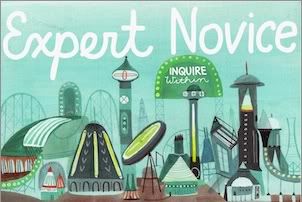Panic!
In my experience, grammars of the internet evolve around the constraints at hand. Before we had yellow emoticons, we had typographical ones. When technology itself evolves to accommodate these grammars, we get strange backwards-compatible tics. Like in MS Word, whenever you type ":)", it will auto-correct to an upright smiley face. This is strangely disconcerting to me. What was wrong with colon-end-parenthesis?
Nothing. Nothing was wrong with it.
And so I feel about Facebook's much-celebrated abolition of "is." Used to be, you would have one choice: fill in the blank. In my case, it would have been "Diana is"..., and I would have supplied some vaguely witty and obscure sentiment. Every now and then, I mean.

The constraints of this system led to some creative adaptations. The mandatory presence of "is" meant that everyone accepted workarounds. "[Blank] is sandstorm," I read one day, and I knew just how she felt.
Sure, the grammarians of Facebook pushed hard for "is" to disappear; I seem to remember an impressively persistent petition on behalf of this change. Sometimes, they argued, you are not "is." Jedediah is not "is wanting hamburger;" he just wants it.
With this, I can sympathize. I believe in grammar. But I also believe that there are different grammars for different occasions. And so I felt a strange, and miniature, sense of loss when Facebook made the "is" optional. One day, soon after the switch, one of my infrequent urges to update my status struck. "Diana," I wanted to write, "is hang on, siobhan." Well. Okay. I still wrote it. But since the "is" was no longer part of our shared automatic grammar, I had trouble justifying leaving it in.
Incidentally, I felt a similar (and similarly miniature) sense of loss when I realized that my cellphone had an apostrophe after all. For months, while text messaging, I had secretly reveled in the fact that no matter how many times I pressed the "1" button for punctuation, I could never uncover an apostrophe. It was not a choice, and so I did not have to apologize for it! "im in the lobby," I could type, care- and apostrophe-free!
And then. I discovered an entire menu of punctuation. Since the constraints had changed, my grammatical expectations had, too. I retreated from the vernacular future, and went back to my habits of complete sentences.
But maybe, someday, technology will truly turn around, and then it will be back to the future. If no one uses apostrophes, then why put them on the main menu? If people can adapt their sentiments around an "is," creating a new vocabulary, why go backwards?
I know these things are small. This post is entirely about miniature matters. But, as Facebook's anti-is petition shows, people do notice, and a few of them even care. Through arbitrary limits, technologies gently shape what seems possible. And whether that's a timid grammatical leap or a braver advance in imagination, that process is worth noticing.



No comments:
Post a Comment